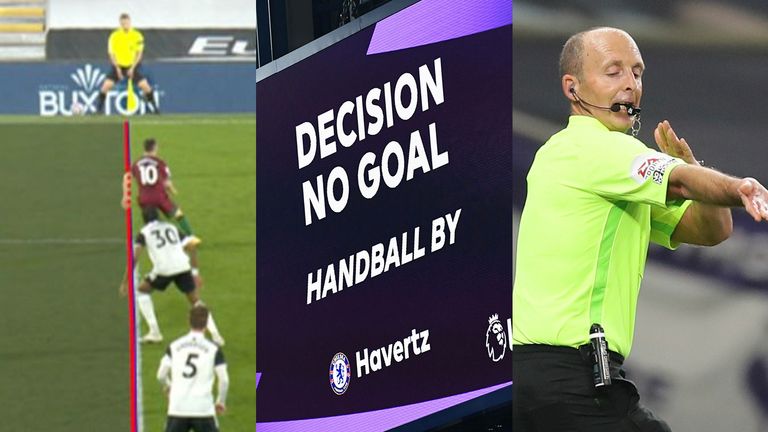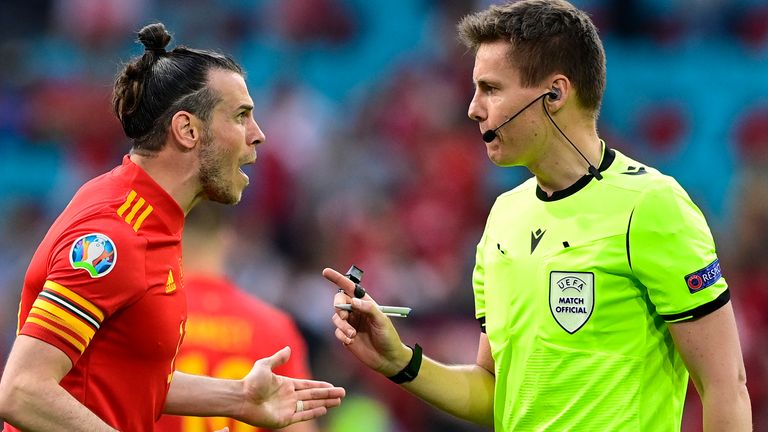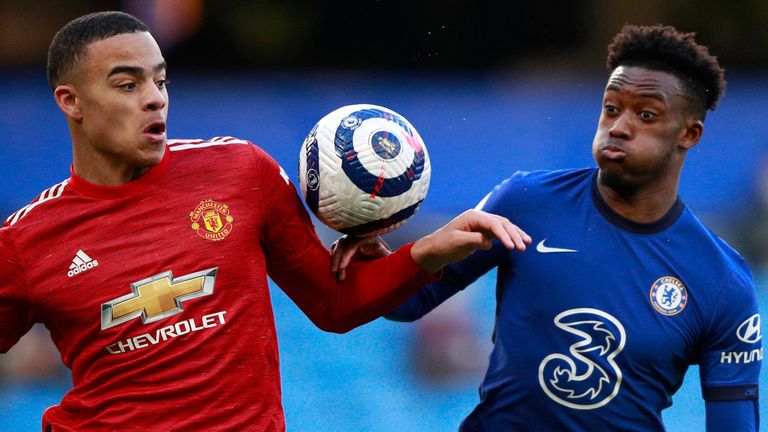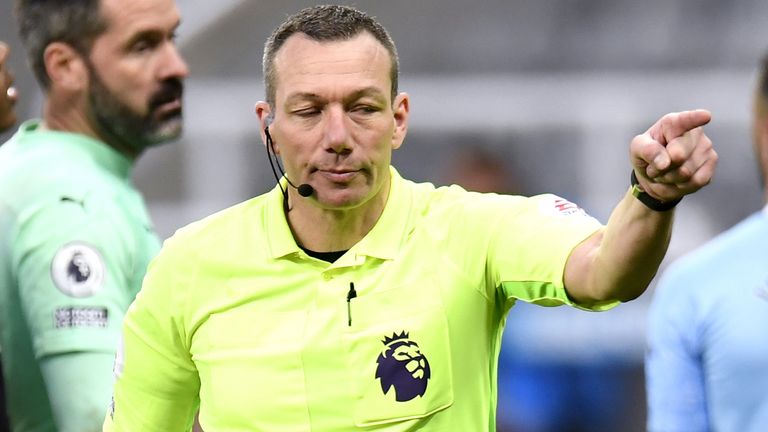What's new for 2021/22? VAR, thicker lines, armpits and handball rule changes for new season
Premier League VARs are set to use 'thicker lines' in games next season to determine marginal decisions; we run through the other major rule changes to look out for heading into 2021/22
Friday 13 August 2021 08:58, UK
What is the benefit of 'thicker lines'? Will the Premier League's VAR use be as good as Euro 2020? And what is considered handball?
With the new season around the corner, we look at the major rule changes to look out for heading into 2021/22.
Thicker lines
Premier League VARs are set to use 'thicker lines' in games this season to determine marginal decisions.
An agreement to use thicker lines followed a presentation by Professional Game Match Officials Limited [PGMOL] referees' chief Mike Riley to clubs at their annual general meeting in June.
The PGMOL hopes the change will give the benefit back to the attacking team after Premier League clubs gave feedback in a VAR survey last season.
The International Football Association Board [IFAB] - football's lawmakers - does not specify a maximum thickness of lines, under the laws of the game.
So, what does this mean, and how does it help?
This should rule out instances where a player's toe has led to a goal being ruled out, cases which many fans, players and pundits felt were ruining the game.
"Fundamentally, we want the approach to be one that allows players to go out and express themselves and let the game flow," Mike Riley said.
"It means the VAR teams will not intervene for trivial offences and the threshold for referee and VAR intervention will be slightly higher than it was last season.
"We've introduced the benefit of the doubt for the attacking player so where we have a really close offside situation, we will follow the same process as last year but now apply thicker broadcast lines.
"Effectively what we have done is given back 20 goals to the game that were deemed offside last season by using quite forensic scrutiny.
"So it's the toenails, the noses of players that were offside - they won't be offside now."
Furthermore, in the first two years of VAR, viewers not in the stadium were able to see the working out process and it led to screenshots of borderline decisions being shared and creating more negativity for the decision-review system.
As a result, all decisions will be made off-screen from now on.
Will VAR be used like it was at Euro 2020?
There were some controversial calls later in the tournament - those outside of England were not overjoyed with the decision to hand the team a penalty in extra-time of their semi-final against Denmark - but overall, VAR use at Euro 2020 felt strangely successful, and very fast.
But it's worth noting that, compared to a Premier League game, UEFA appointed double the amount of officials, and crucially included a dedicated VAR focusing solely on offside.
Working-out by the VAR was also not shown, only the final decision at times.
Euro 2020 was also 51 games, a small sample size in comparison to the 380 played over a Premier League season. Naturally, controversial decisions that did not involve England, Scotland or Wales were not given the same amount of air time as a Premier League game.
So although tolerance levels are dropping slightly with the thicker offside lines, and the final image will have to be conclusive, it's likely decisions will take just as long.
Armpits and offsides
A brief clarification from FIFA about where offside lines start and stop: they say the bottom of the armpit is now being classed as the part of the body where offsides will be measured from.
Handball language changing
Accidental handball in the build-up to a goal will no longer be deemed an offence. The crucial word here is 'build-up'.
It will still be an offence if an accidental handball directly creates the chance that scores the goal, or scores the goal itself.
There is also new language around how a player makes their body 'unnaturally bigger' in a handball situation.
The new language is: "A player is considered to have made their body unnaturally bigger when the position of their hand/arm is not a consequence of, or justifiable by, the player's body movement for that specific situation. By having their hand/arm in such a position, the player takes a risk of their hand/arm being hit by the ball and being penalised."
What this means is the handball law no longer specifies that a particular position, or anything other than a standard silhouette of a body, are considered 'unnatural'.
Sounds more confusing, right? Although grey areas will undoubtedly still exist, what this should achieve is more subjectivity from the referees on what is deemed 'the player's body movement for that specific situation' and less on pedantic, one-size-fits-all body positions.
New approach to penalties
There will also be a tweak in the approach toward penalties after a record high of 125 were awarded last season.
This season, referees should not only establish whether there is clear contact but whether it had enough of a consequence in order to award a penalty and whether the player used the contact to try to win a foul or a penalty.
"It's not sufficient to just say there was contact," Riley added. "Contact on its own is only one element the referee should look for.
"If you have clear contact that has a consequence, it's a foul - but if you have any doubts in these elements, they are unlikely to be penalised.
"You also want it to be a proper foul and not the slightest contact that someone has used to go over to get a penalty."
EFL scrapping five subs
The EFL is scrapping the five substitutions rule for the 2021/22 campaign.
The rule, allowing clubs to make five changes per game as opposed to the usual three, was brought in upon football's restart in June 2020 following the Covid-enforced break.
So Championship, League One and League Two teams can name seven substitutes but will only be able to use a maximum of three.
Concussion changes will be granted if required, and the Premier League's concussion substitution rules will also remain.









